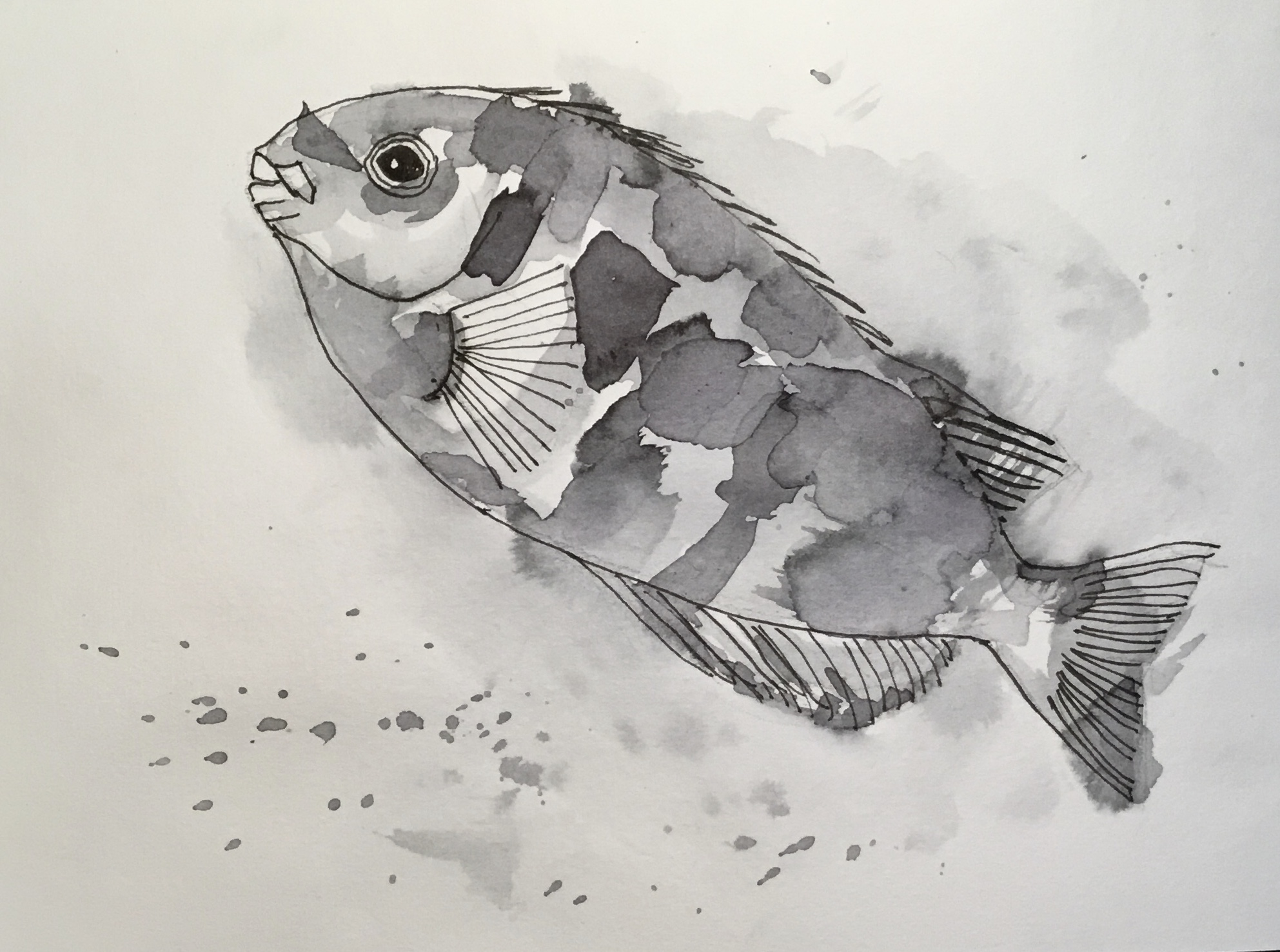It seems the Mediterranean is now full of ‘alien’ fish, which decided to emigrate to better seas, and so swam there from the Indian Ocean via the Suez Canal.
They have thrived to the extent they are now threatening the eco-system, being both prolific breeders and aggressive towards native species; but they are already too numerous to eradicate.
So, what is the next best solution? Why, eating them of course, and thus killing two birds (fish?) with one stone: hopefully equilibrium will be established, while at the same time we can complement our calamari with rabbitfish, trumpetfish and lionfish.

At least this is the original idea of Greek conservationists, who have come up with a cookbook of recipes, so that tourists can be encouraged to try these new species. ‘Recipes for Edible Alien Species’ is published by two conservation organizations, the Cyclades Preservation Fund and iSea.
In the book, written in both Greek and English, Greek chefs have paired these species with classic Mediterranean ingredients like olive oil, garlic, tomatoes and parsley. While it doesn’t have the glamour of a Nigella cookbook, the recipes sound delicious: it would probably be a good idea to take some good photos of the finished dishes and post them on Instagram. You can find the cookbook here

Tempting locals and tourists to eat the invaders will help the environment, but also fishermen to make a living. A campaign called Pick the Alien, launched in a few islands such as Santorini, Amorgos, and Zakynthos, aims to encourage people to choose these fish on the menu of their favorite fish taverna.
Would I try them? Of course. I’m always in favour of new tastes, as long as it’s not fried insects or monkey brains, even if the former are also touted as a help for the environment.


Wonderful paintings. Did you do them?
LikeLiked by 1 person
Thanks, yes, they’re ink drawings! They were fun to do.
LikeLike
That’s really interesting. Some of our rivers in Scotland have become infected with American crayfish and stocks of native species are being rapidly depleted. The problem seems insurmountable and no one is allowed to catch the crayfish to eat them, which seems a great shame. Love your drawings.
LikeLiked by 2 people
How weird… Why not? It would seem a good solution.
LikeLiked by 1 person
You would thinks so, wouldn’t you but the ‘experts’ have spoken!
LikeLike
They’re good, you should lobby to eat them! That’ll clear up the problem. I think I read where the Lion Fish showed up here they were eating them too. It seems like a great solution especially if they’re tasty.
LikeLiked by 1 person
That is both practical and imaginative! Bring me a plate of lionfish, with some tiger prawns on the side, dressed with elephant garlic! Seriously, though, I wish tilapia tasted better, as we might eradicate our own invasion!
LikeLiked by 1 person
Perhaps they should make tilapia into dog food, instead of salmon. I’ve had two dogs by now who only like fish, and sadly, it really makes their doggy breath much worse! 😄
LikeLike
Problem is, it’s also one of those fish that sequesters heavy metals and pesticides. If farmed, it’s full of antibiotics, if wild, it’s full of mercury. I think they should dry it and turn it into fertiliser!
LikeLike
I’m vegetarian, so I wouldn’t eat them, no matter how wonderful the pictures in the cookery book are. I like your drawings, although the spiky red one looks a bit scary.
LikeLike
Yes, I wouldn’t like to have to clean it!
LikeLiked by 1 person
This is all very well, but I see problems for sea-bathing this summer if the migrating species include certain families of jelly-fish. Or indeed certain sorts of fish….
LikeLiked by 1 person
Maybe we’ll be advised to make jellyfish jello?😂 Or some kind of green smoothie, full of omega-3, with added algae (that is, if the rabbitfish, which apparently is a glutton for seaweed, has left us any…
LikeLike
Your pictures are excellent, Marina. I hope that people start to develop a liking for those fish, as it would be sad if they took over from your local species. This change in the environment during the current crisis is some indication of the kinds of fish and animals we might have already had, if not for pollution.
Best wishes, Pete.
LikeLike
Nice! I love that first painting. (Of course, I went from admiring the beauty to hearing of eating them but, hey, such is life.) 😉
LikeLike
Beautiful paintings. Canals and alien fish devouring natives: That’s the problem with canals linking vastly different environments. As a result of the Suez Canal, Aden experienced for the first time devastating cyclones when previously she’d been free of them.
LikeLike
Yum.
LikeLiked by 1 person
I am all in for helping the environment and eating fish. It is nice to know this information, thanks.
LikeLiked by 1 person
It looks weird but it’s actually a great artwork, Marina!
LikeLiked by 1 person
Thank you!
LikeLike